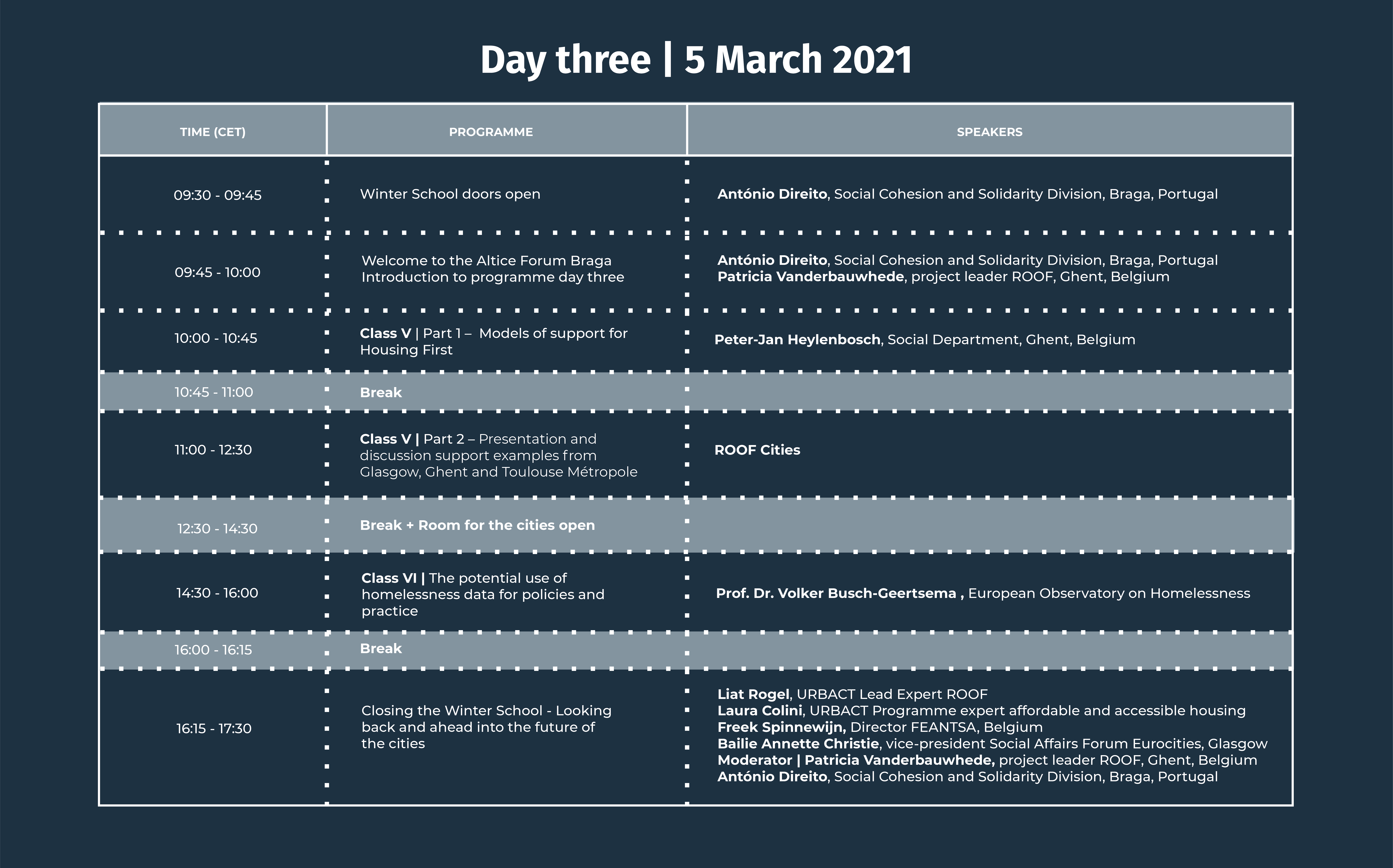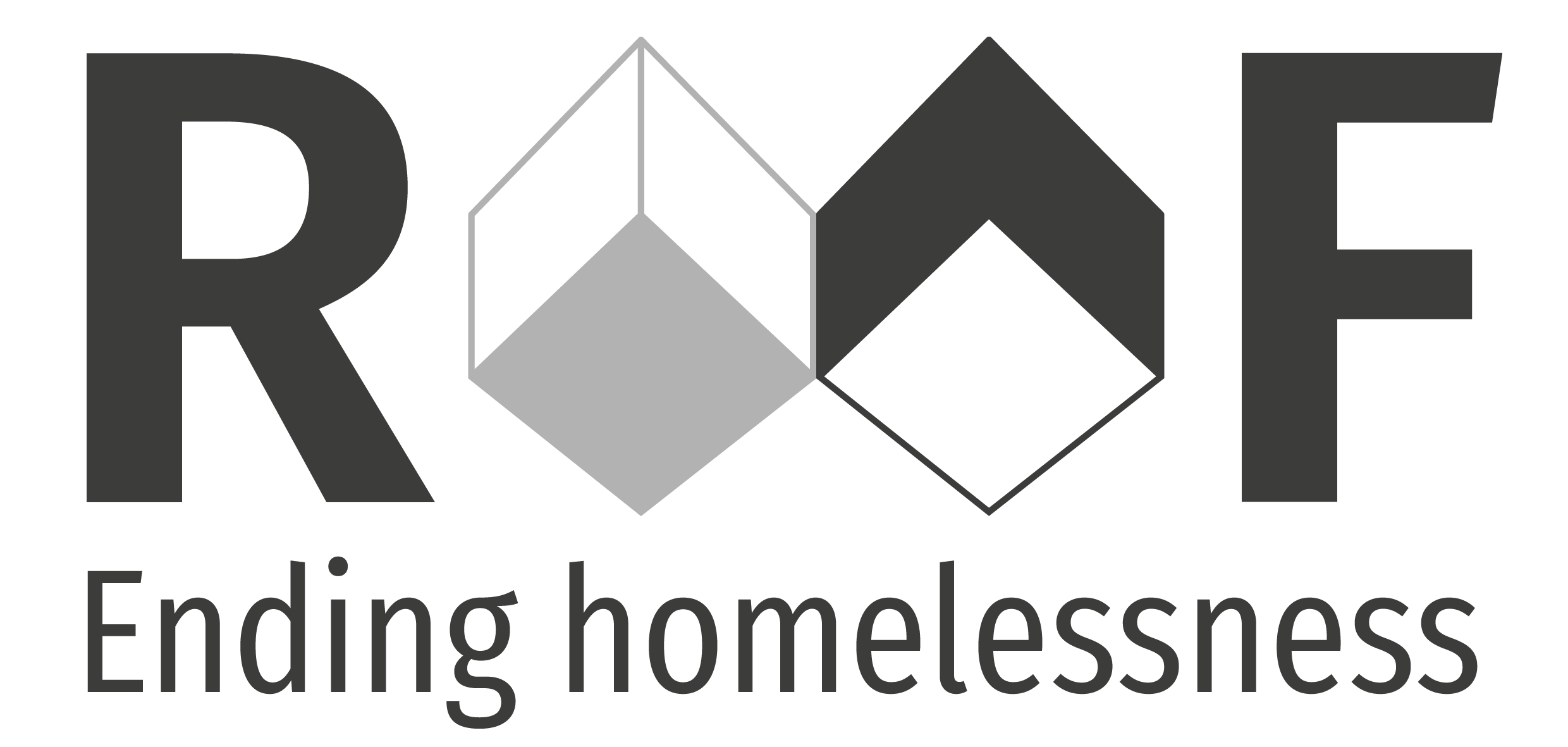
From the 3rd till the 5th of March 2021 the URBACT ROOF team brought together guests from across Europe to participate in our first ever Winter School hosted by the city of Braga, Portugal and co-hosted by Thessaloniki in Greece and Toulouse Métropole in France. The three-day event, hosted online due to the on-going pandemic, featured speakers from Belgium, Denmark, Germany, Portugal and Scotland. The Winter School offered a unique opportunity to gain insight in and converse with the ROOF partners and beyond on topics such as:
•Road towards Housing First
•Support models
•Working together with organisations and stakeholders
•Data collection
•Storytelling
Day 1 | 3 March 2021
Opening session Local, national and European policy I Class I Basics I Class II Stakeholder engagement and social innovation
In the morning the municipality of Braga, the ROOF network and URBACT gladly welcome you to the ROOF Winter school.
During the opening session, the (deputy) mayors of the cities of Braga, Thessaloniki and Toulouse Métropole explain their homelessness and housing policy. Then the Coordinator of the National strategy for Homelessness in Portugal presents the national strategy and the policy of the Portuguese presidency of the Council of the EU. Laura Colini, URBACT Programme expert on Affordable and accessible housing will moderates this session
Our first class is in the capable hands of FEANTSA, European Federation of National Organisations Working with the Homeless. They will explain the basics on data, Housing First/led and local homelessness/housing policy.
In the afternoon you can join our second class, on Stakeholder engagement and Service innovation, brought to you by the Braga Human Power Hub. A class on how to involve external partners in service planning, constellation of services.
We conclude the first day with a ULG cities session, where the Urbact Local Group members can give feedback, exchange in their own language. This is wrapped up by a quick look at the programme of day two.
SPEAKERS
Ricardo Rio
Mayor of Braga
___________________________
Ricardo Rio has been a city council member in Braga since 2005. He was a member of Braga's Municipal Assembly (Alderman) during the 2001-2005 term. Since 2013 he has been the Mayor of Braga. He currently is the Chairman of the Executive Board of the cross-border association of municipalities designated as “Eixo Atlântico do Noroeste Peninsular”, he is the Chairman of the Executive Board of Cavado’s Inter-municipal Community and presides over the Board of Directors of the following Municipal Companies: “Theatro Circo”, “AGERE” and “InvestBraga”. He is also Member of the Global Parliament of Mayors and Member of the Committee of the Regions.
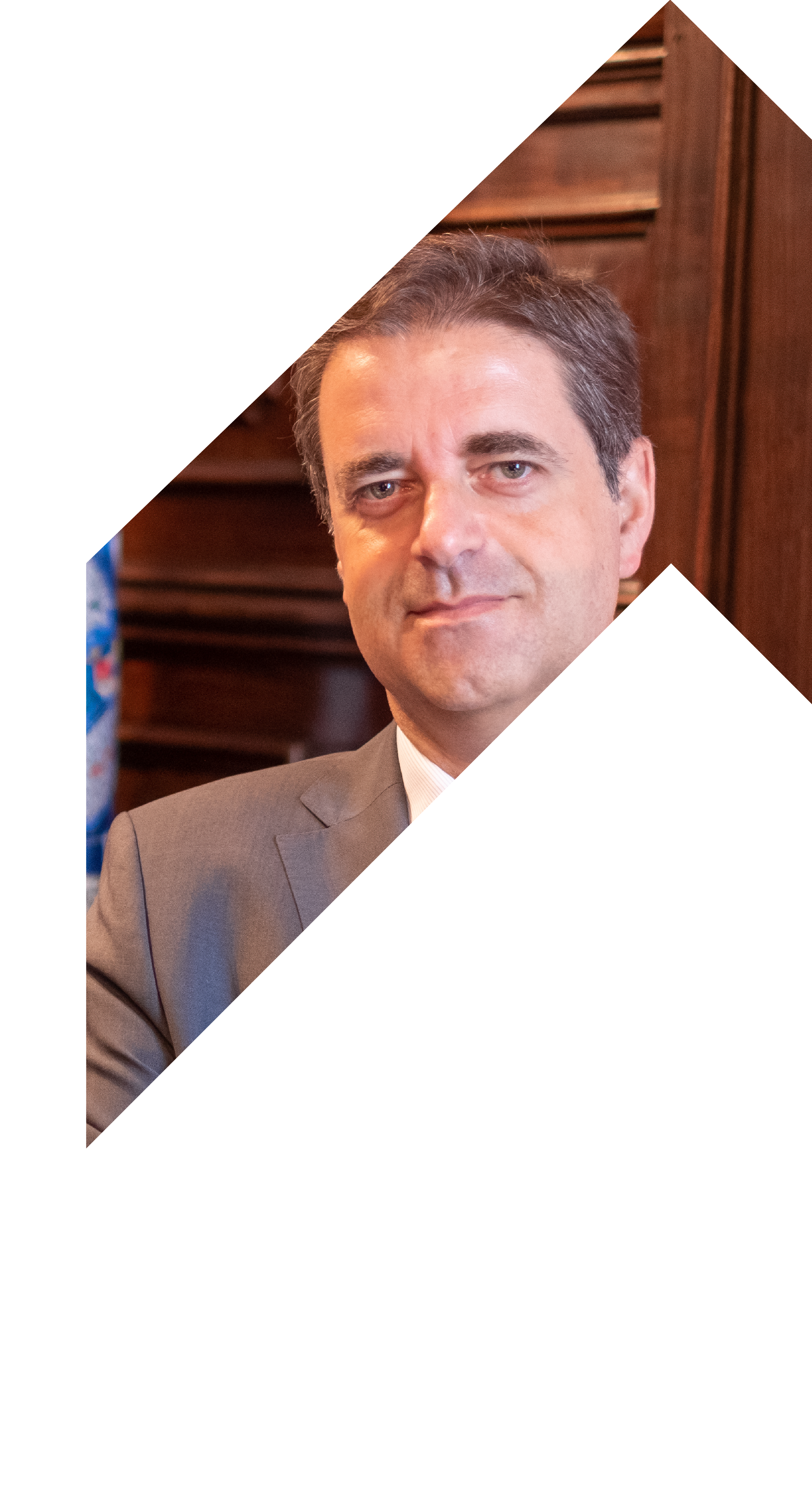
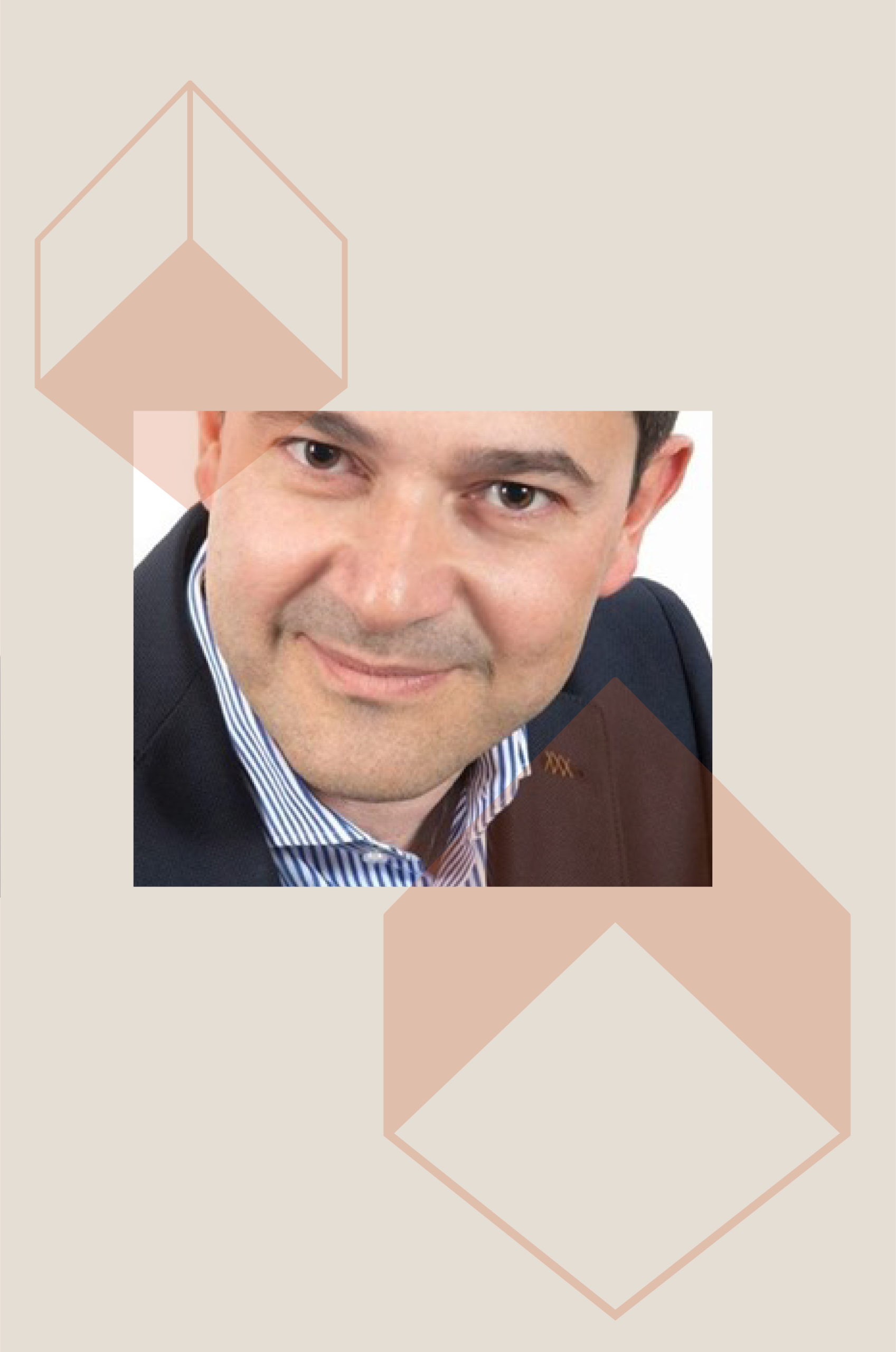
Mihalis Koupkas
Deputy Mayor Thessaloniki
__________________________________
Mihalis Koupkas is an independent member of the City Council of Thessaloniki. He is the Deputy Mayor for Finance and is responsible for the supervision of externally funded programmes implemented by the Municipality of Thessaloniki. In parallel, he is the Chairperson of Tax Officials of Thessaloniki-Kilkis and Halkidiki, a labour union of employees for tax officials and the General Secretary of the Economic Chamber of Central Macedonia.
Henrique Manuel Marques Joaquim
National Coordinator of the Strategy on homelessness
_________________
Henrique Joaquim has a degree for Social worker and Social Work PhD (Portuguese Catholic University). He is currently the Executive Manager of the National Strategy for Social Inclusion of Homeless People (since jan 2020). Henrique Joaquim is also the General Director of “Comunidade Vida e Paz” – NGO for Homeless People (2012/2019)
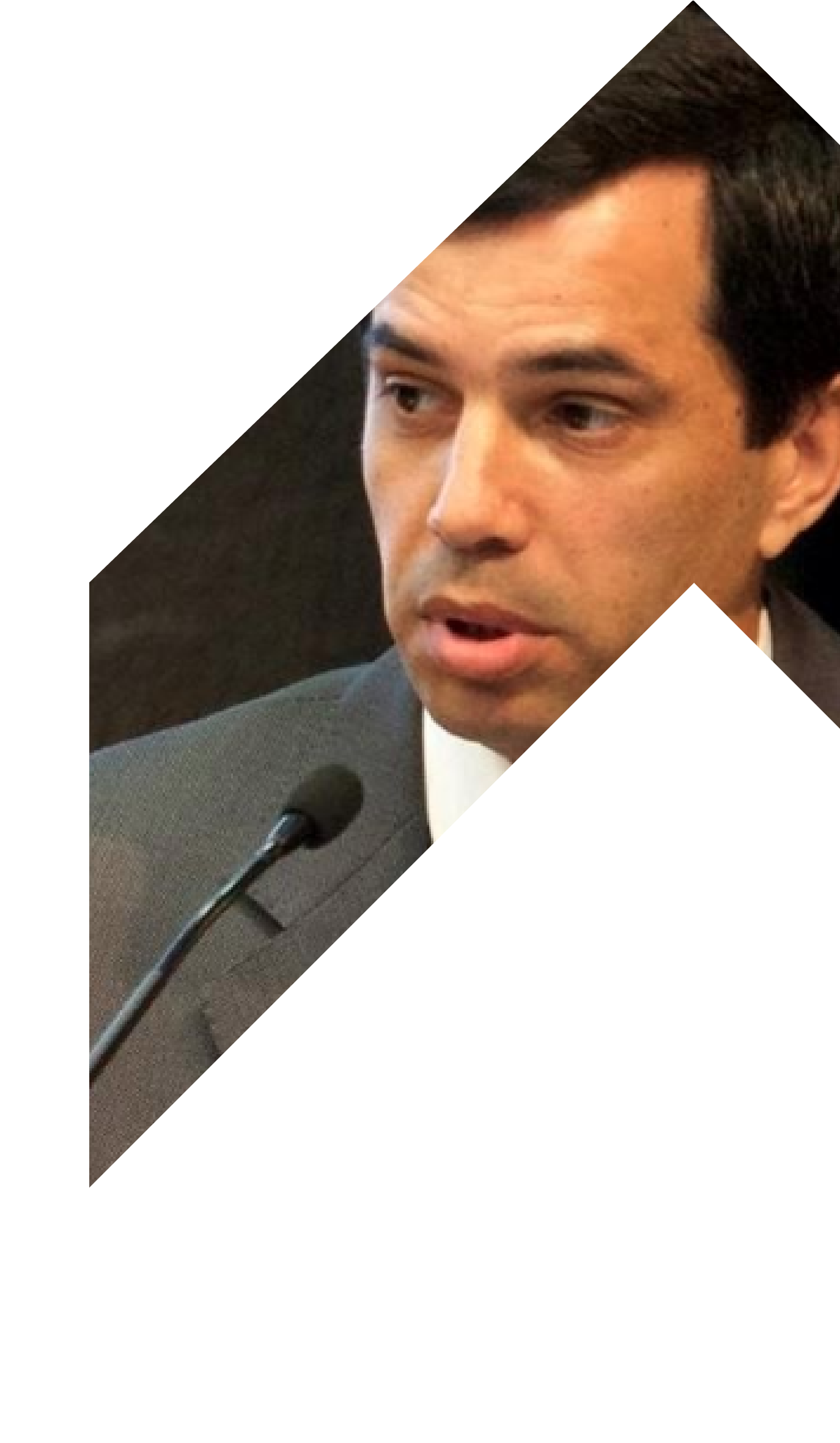

Daniel Rougé
Deputy Mayor Toulouse
__________________________________
Daniel Rougé is the first Deputy Mayor of Toulouse in charge of the Coordination of Solidarity and Inclusion Policies, as well as Vice-president of the Toulouse Communal Center for Social Action. He is also Metropolitan Councillor of Toulouse Métropole. University Professor and hospital practitioner in forensic medicine, former Dean of the RangueilFaculty of Medicine (University Toulouse III - Paul Sabatier), Daniel Rougé has a long outstanding career dedicated to forensic and penitentiary medicine, leading him to hold thehighest academic, hospital and administrative positions (as an expert at the Court of Appeal and accredited by the Court of Casssation). He has been awarded the Legion of Honour (Officer). Today he is committed to promoting ambitious policies in favor of social inclusion and cohesion
for the City of Toulouse.
Laura Colini
URBACT Programme Expert on affordable and accessible housing
_________________
Laura Colini is Co-founder of TEsserae Urban Social Research, PhD Habil in urban studies and member of INURA network. Laura's interest covers EU public policies on urban poverty, housing and migration. She works as senior policy advisor for EU urban programmes such as URBACT, Urban Innovative Action for which she coordinates the initiative ”cities engaging in the right to housing” and represents URBACT at the EU Urban Agenda partnerships on Inclusion of migrants and refugees, Housing, Urban poverty and Culture and cultural heritage. She occasionally teaches single classes or at postgraduate programmes, and is engaged as activist in the campaign "From sea to the cities” on migration.
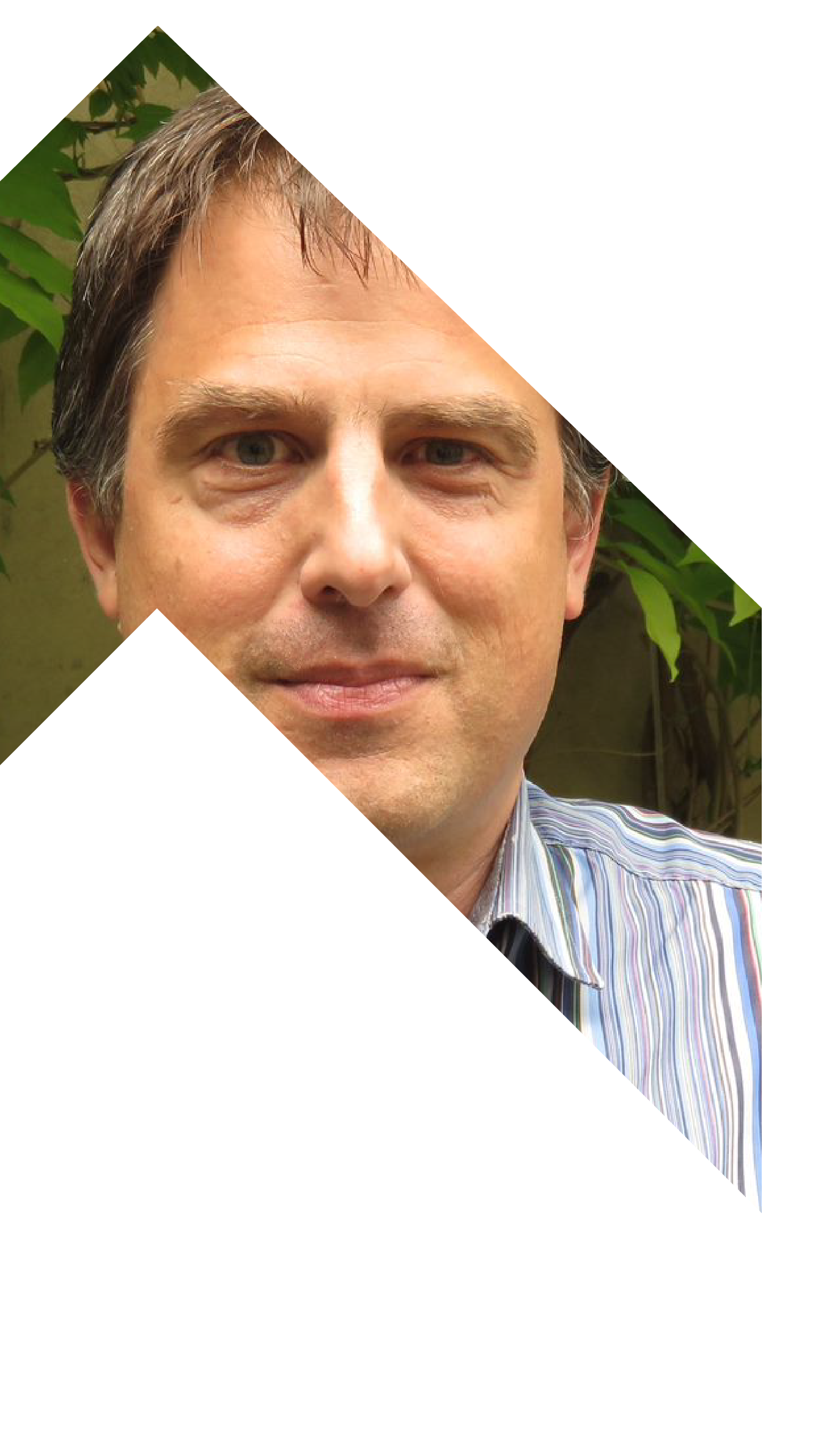
Class I The basics on data, Housing First and local homelessness/housing policy
Freek Spinnewijn
Director FEANTSA - Belgium
__________________________________
The first Winter School class on the ROOF basics is brought to us by FEANTSA. It is important that we all have the same understanding. Director Freek Spinnewijn explains the relevance of monitoring, what is ETHOS Light, what is Housing First/Led and how it is a work in progress. He will conclude with a view on homelessness/housing policy on a local/city level.
Freek is director of FEANTSA. FEANTSA is the European umbrella of NGOs working with homeless people. FEANTSA has member organisations in 30 European countries and works on a variety of themes including housing, health, and migration. Freek sits on the board of several European organisations and transnational projects. He is currently the president of the European Public Health Alliance (EPHA) and of Social Services Europe (SSE) and sits on the Board of EAPN (European Anti-Poverty network).
Class II Stakeholder engagement and Service innovation
Carlos Santos
Human Power Hub - Braga Social Innovation Centre, Portugal
__________________________________
The second Winter School class is offered by the Braga Human Power Hub. It is about learning how to involve external partners in service planning. During the class Carlos Santos focuses on two dimensions of an Urbact Local Group and on how to increase engagement of stakeholders by involving them in Service design and Open Social Innovation.
Carlos de Sousa Santos, develops activity in the City of Braga, at the Bracara Augusta Foundation, an institution where he took over the coordination of the generation Youth Program between 2011 and 2019. He also takes on the coordination of International Projects at the Bracara Augusta Foundation. Carlos is currently involved with the foundation and development of Human Power Hub - Braga Social Innovation Centre.

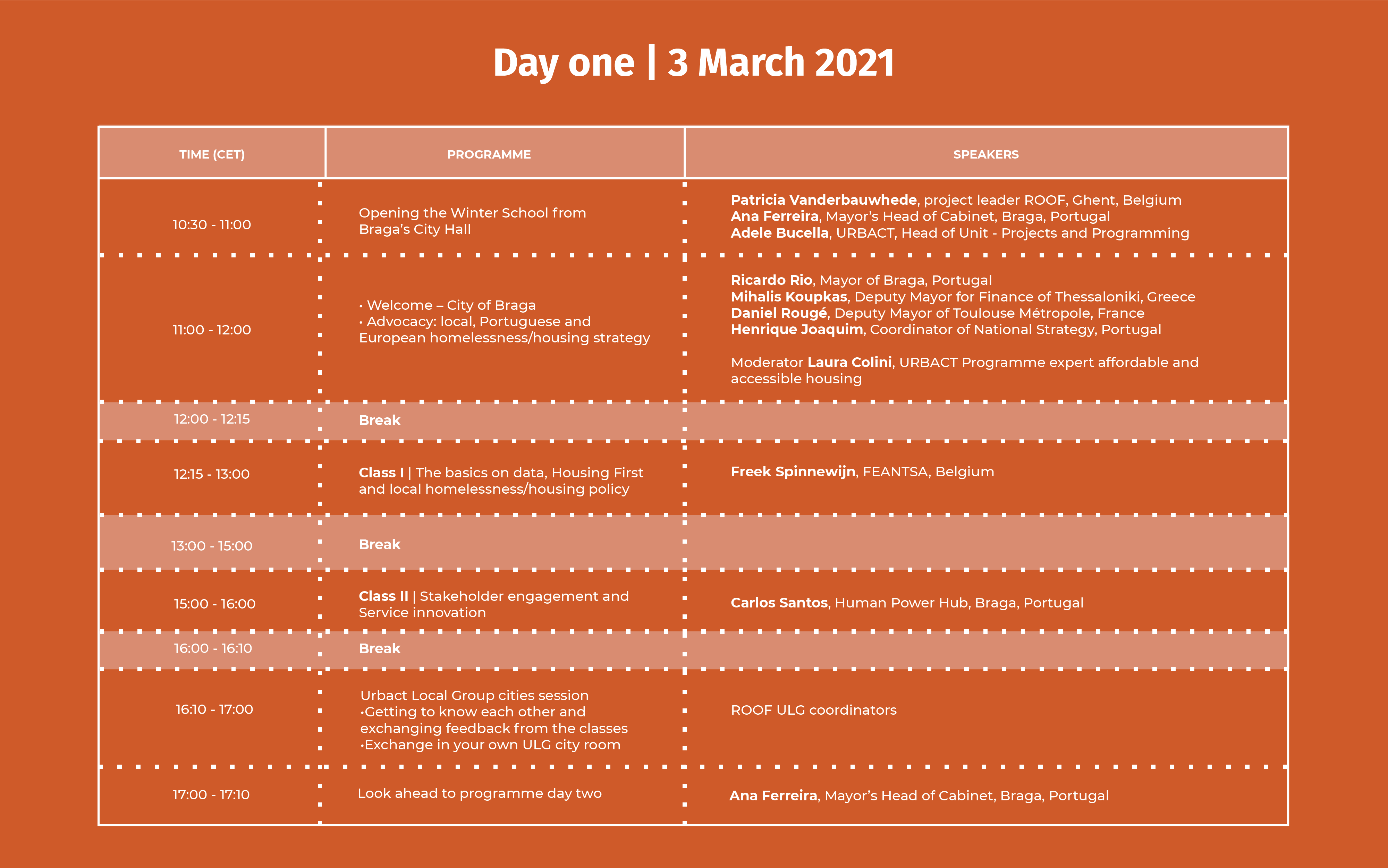
Day 2 | 4 March 2021
Class III Building an Alliance I Class IV Scaling-up Housing First I ROOF ULG members sharing challenges
In the morning of day two the Danish Home to all Alliance bring their successful experience on Building an alliance to end youth homelessness, on how together you achieve so much more. They are followed by the Scottish Homelessness Network teaching us about Scaling-up Housing First in Scotland. A great opportunity to start developing fundamental skills to shift the mindset towards Housing First.
In the afternoon ROOF ULG members exchange on the challenges they encounter on homelessness, housing, COVID 19.
SPEAKERS
Class III Building an alliance to end youth homelessness
Anne Bergvith Sørensen
Chief consultant at Home for All Alliance, Denmark
__________________________________
To end homelessness we need multiple stakeholders to work together across sectors. But working together and setting individual interests aside is never an easy task. Home for All is a national alliance of 20 partners from different sectors working together on a national level to end youth homelessness in Denmark. Since 2016 Home for All has successfully brought important stakeholders together around a common agenda. In this third Winter School class Chief consultant Anne Bergvith Sørensen shares experiences and methodologies from Home for All to address the questions: How can we build an alliance of stakeholders around a common agenda? And how can an alliance contribute to systems change in policy and practice?
Anne Bergvith Sørensen is Chief Consultant in the backbone office of the Home for All Alliance. She is responsible for the collaboration between the 20 partners in the alliance

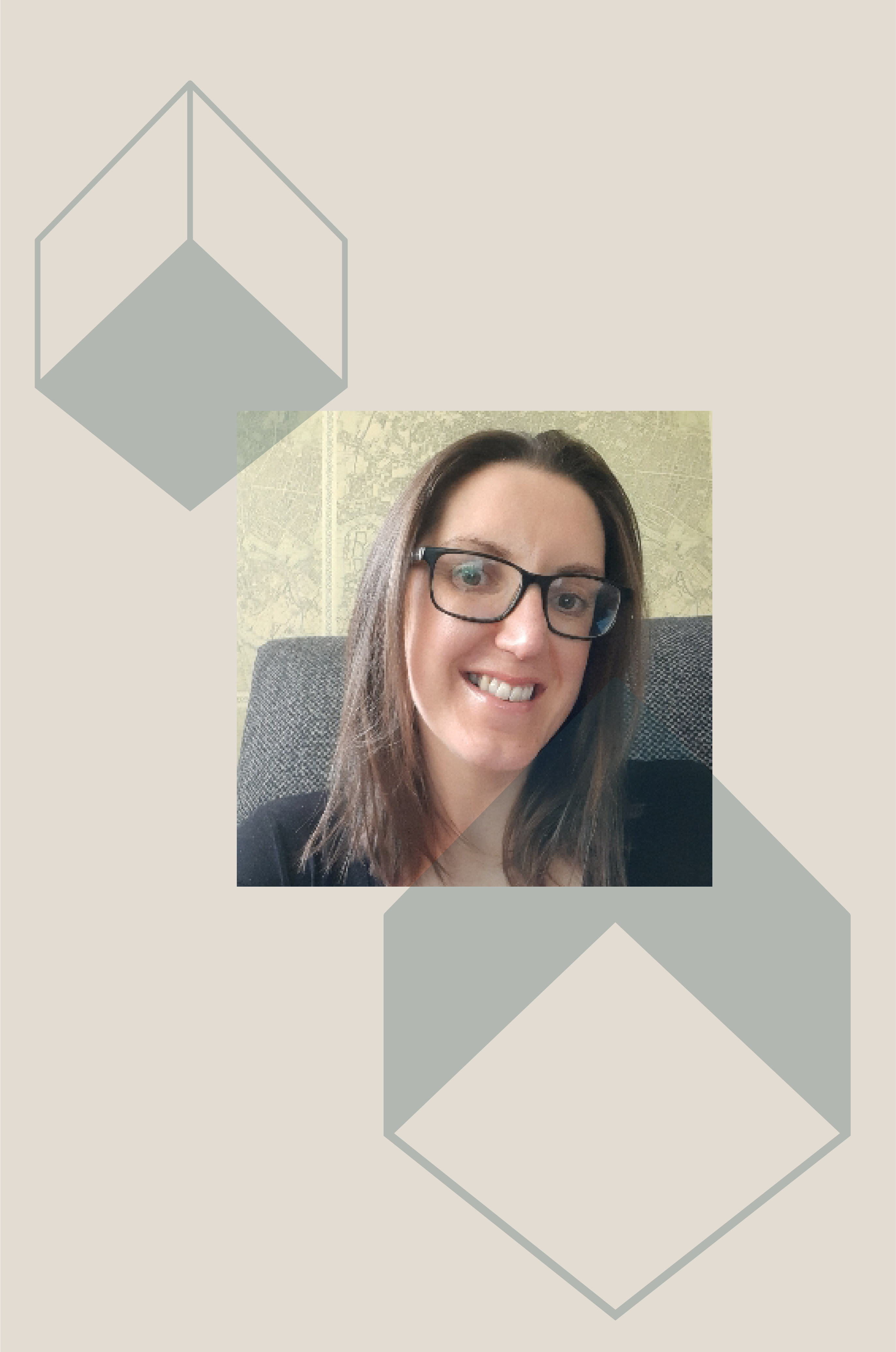
Class IV Scaling-up Housing First in Scotland
Claire Frew
Policy & Impact Manager at Homelessness Network Scotland
__________________________________
In the fourth Winter School class, policy manager Claire Frew from the Homelessness Network Scotland considers the experience of scaling-up Housing First in Scotland so far and reflects on some of the lessons learned. We then look forward to the next 10 years and what it will take to deliver Housing First at a scale that creates systems change and meets our best estimates of demand.
Claire is the Policy & Impact Manager at Homeless Network Scotland and has worked for the organisation since 2004. She has completed her Postgraduate Diploma in Housing Studies at the University of Stirling, her Masters in Public Policy at the University of Glasgow and was recently awarded an Honorary Research Fellowship by I-SPHERE at Heriot-Watt University. A large part of her work is supporting the transition to Rapid Rehousing and Housing First across Scotland, publishing monthly and annual reports on progress.
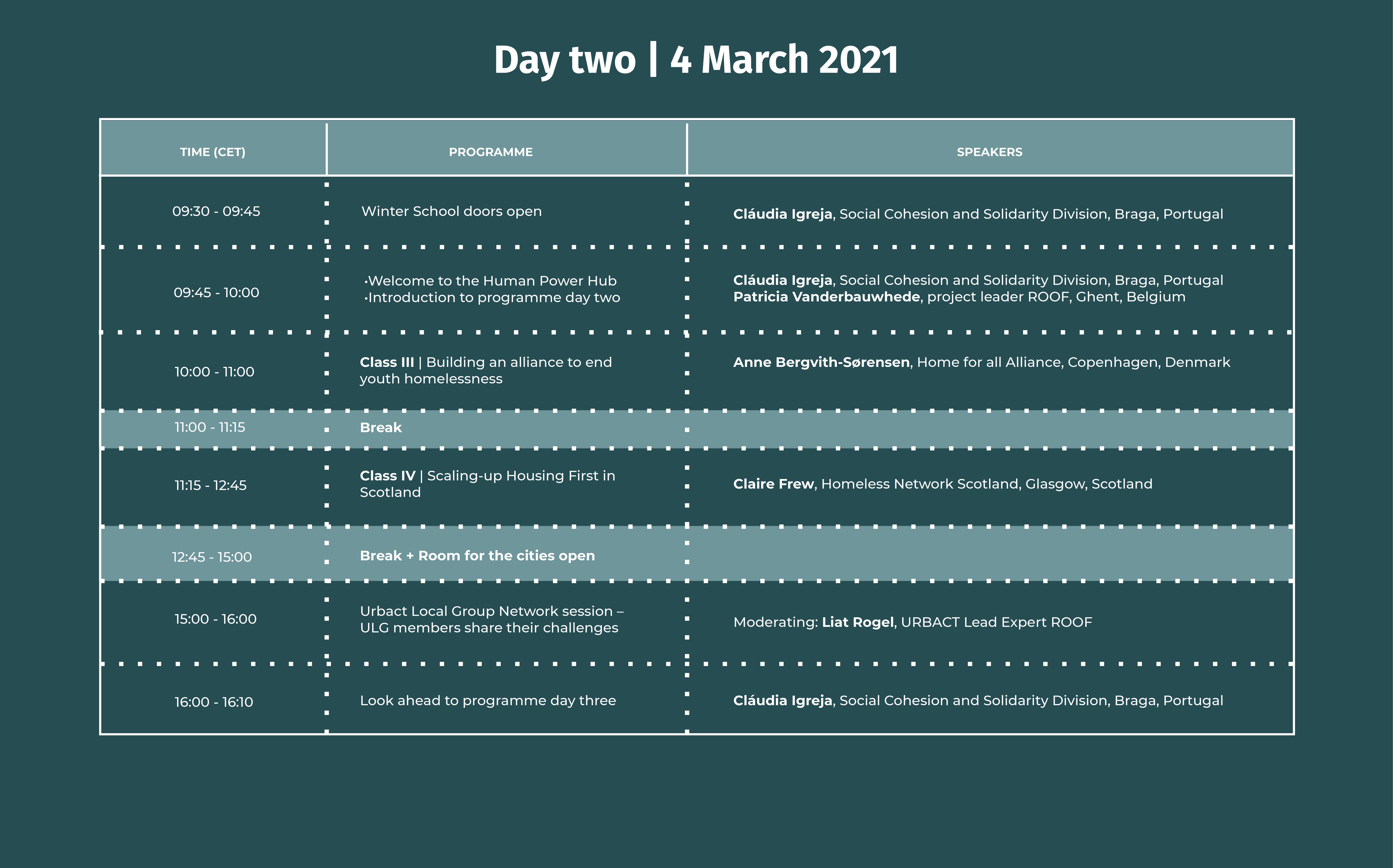
Day 3 | 5 March 2021
Class V Housing First/Led Support models I Class VI Using data for policy and practice I Closing the Winter school
On the final day the Ghent Social Department teaches us different models of Housing First/led support, indispensable for good results. Then the 3 ROOF cities Ghent, Glasgow and Toulouse Métropole, share their support examples. In the afternoon URBACT Expert Prof. Dr. Volker Busch-Geertsema explains how to use data for policy and practice.
We close the ROOF Winter school together, sharing some of our new insights and looking forward to future inspirations and aspirations.
SPEAKERS
Class V Part 1 Models of support for Housing First/Led
Peter-Jan Heylenbosch
Housing First practitioner and trainer at Social department City of Ghent, Belgium
__________________________________
This fifth Winter School class focuses on the different types of support that go with Housing First and Housing Led solutions. Trainer Peter-Jan Heylenbosch starts from a general overview of Housing First/Led principles, to dive into different approaches of support. We also cover the most common questions and misunderstandings about Housing First/Led support.
Peter-Jan Heylenbosch worked several years with homeless people on the streets. The last 6 years he has been delivering ICM (Intensive Case management) support to Housing First residents in Ghent. Peter-Jan is trained as a Housing First teacher and delivers classes all over Belgium and recently also for Housing First Europe Hub.
Class V Part 2 ROOF cities support examples
__________________________________
Specific cases of Housing First/Led support in practice, complements Part 1. The three ROOF cities Ghent, Glasgow and Toulouse Métropole present their support examples.

Class VI The potential use of data for policies and practice
Prof. Dr. Volker Busch-Geertsema
Coordinator of the European Observatory on Homelessness
__________________________________
In this sixth and final Winter School class Prof. Dr. Busch-Geertsema presents examples of how to use data about homelessness for influencing homeless policies and for improving services for homeless people and households at risk of homelessness. Some of the leading questions are:
- How can administrative data be used for these purposes?
- Which data are relevant to be collected?
- What can data tell us about the effects of policy measures and how can data influence the development of such measures?
- How to promote evidence-based policies?
- How to create an evidence-based service design?
- How to set meaningful targets and evaluate progress towards them?
Professor Dr. Volker Busch-Geertsema is the Coordinator of the European Observatory on Homelessness and has been working for more than 30 years with GISS, Gesellschaft für Innovative Sozialforschung und Sozialplanung, Bremen. In the European and international context GISS and Prof Busch-Geertsema have been a lead partner in projects focusing on measuring homelessness, prevention of homelessness and on strategies to minimise homelessness. In the German context, his work centers on homelessness research and counselling, with a long history of successful work with German Länder on the quantitative extent of homelessness, preventative policies and their effects, types and standards of temporary accommodation and efforts undertaken to reintegrate homeless people into normal permanent housing. Prof. Dr. Busch-Geertsema is also a Lead Expert for URBACT.
